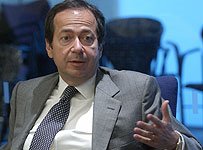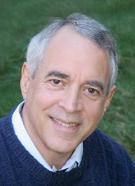Is the SEC Case Against Goldman Sachs Being Staged for Political Advantage?
by Bill Sardi
Recently by Bill Sardi: Preparations Being Made To Move FortKnox Gold Into Your BankAccount
What just happened to Wall Street, with the announcement that the Securities Exchange Commission has filed fraud charges against Goldman Sachs Group, Inc., is so damning that its impact had to be blunted by its late Friday afternoon release. It’s what government does when it doesn’t want the stock market to plunge. But government DOES want to play up to the public’s infuriation over continuing revelations of greed and fraud on Wall Street.
A Monday morning release of this story might have sent the entire stock market into a crash (Goldman Sachs Group Inc, stock is down 23.57 points, erasing ~$12 billion of market capitalization), and that’s because there are likely more fraudulent billion-dollar investments to be revealed.
The American public needs to first grasp a broader view of this event. The Administration in Washington DC, heading for an election in November that will surely be fueled with voter outrage, has decided to strike a seeming blow to Wall Street to strengthen its hand in pushing for financial reform. Yet it is so odd that politicians were the ones who allowed all this to happen (more on this below). Does anyone have an explanation why the SEC has only now decided to file charges involving a 2007 billion-dollar investment? Or why the investor who most benefited financially and who assembled this mortgage-backed investment, John Paulson, has yet to be charged with any wrongdoing?
The smoking gun: an e-mail
 John Paulson, the billionaire
John Paulson, the billionaire
Another piece of the intrigue here is that the primary provider of evidence in the case is a star Goldman Sachs trader, a Frenchman by birth, who has suddenly left the U.S. for Europe as this story hits the news outlets. Fabrice Tourre, a GS vice president, wrote an email in 2007 that is the smoking gun in this case. Did he leave the U.S. in fear for his life?
Mr. Tourre’s 2007 email, which said "the whole building is about to collapse now," shortly before the bonds were sold, and which said he would be the only potential survivor, provides foreknowledge of the billion-dollar investment that was sure to fail. Tourre was "principally responsible" for piecing together this novel and new type of investment at GS. He was the point man for Paulson.
When Tourre produced a 65-page "flip book" that contained details of the billion-dollar investment, to be provided to potential investors, this provided the evidence that SEC needed for its case.
 Fabrice Tourre, 31-year-old Goldman Sachs vice president, who is reported to have fled the country with the announcement that a 2007 email he wrote is the "smoking gun" in the SECs case against GS.
Fabrice Tourre, 31-year-old Goldman Sachs vice president, who is reported to have fled the country with the announcement that a 2007 email he wrote is the "smoking gun" in the SECs case against GS.
Don’t get the false impression that Mr. Tourre is a whistleblower here. The SEC alleges Mr. Tourre misled investors about Paulson’s role, saying Paulson had invested millions of dollars in hopes the packaged mortgage bonds would rise in value. Of course, Mr. Tourre is not the target of the SEC complaint, Goldman Sachs is. Its senior management had full knowledge of this deal. From 2004 to 2007, Goldman Sachs had arranged about two dozen similar deals.
Nor should anyone get the false notion that Paulson let others do all his bidding. He was actively raising funds and selling investment groups on this kind of instrument for some time, going back to 2006. Paulson wanted to invent the invincible wager.
An article in The Wall Street Journal documents that a senior banker at Bear Stearns Companies turned down this trade, questioning the propriety of selling deals to investors that a bearish client had assembled. (Bear market traders bet that an investment will fall in value, while bull-market traders bet than an investment will rise in value.)
Throw the book at them
Believe it or not, an entire book was written of this now infamous investment before the SEC took action.
 Of interest is Greg Zuckerman, The Wall Street Journal’s senior reporter in this case, who wrote The Greatest Trade Ever, about this trade and others like it, long before the SEC took action. The jacket on this book says: "The behind-the-scenes story of how John Paulson defied Wall Street and made financial history." The book, published in November of 2009, hardly made ripples on Wall Street or in the financial news press. The SEC was sitting on all this information for over two years and did nothing. It was waiting for the right political moment to strike.
Of interest is Greg Zuckerman, The Wall Street Journal’s senior reporter in this case, who wrote The Greatest Trade Ever, about this trade and others like it, long before the SEC took action. The jacket on this book says: "The behind-the-scenes story of how John Paulson defied Wall Street and made financial history." The book, published in November of 2009, hardly made ripples on Wall Street or in the financial news press. The SEC was sitting on all this information for over two years and did nothing. It was waiting for the right political moment to strike.
Zuckerman’s book outlines how John Paulson assembled risky mortgage investments with another party, Goldman Sachs, investments that were sure to fail, and then bet against them. Goldman Sachs used its reputation to promote the packaged mortgage investment to an overseas investor without revealing it was in cahoots with Paulson. In fact, the overseas bank involved specifically said it would not proceed if the packaged mortgages had been assembled by Paulson.
Paulson made a killing — a billion dollars, and Goldman Sachs made millions assembling the deal from both sides. Paulson’s defense is that he made no misrepresentations, only Goldman Sachs did, but what of the ethics of this deal?
Yves Smith, author of Naked Capitalism, and head of Aurora Advisors, a management consulting group, and the author of the new book, Econned: How Unenlightened Self Interest Undermined Democracy and Corrupted Capitalism, calls the investment that John Paulson sponsored a "Trojan horse for Mr. Paulson to take a short position, betting against the very same investment he was creating, but his intent was not disclosed…. at the expense of investors who had been kept in the dark and would almost certainly have turned down the deal if they had had the full picture."
Goldman Sachs living up to its now infamous reputation
It’s obvious now that Goldman Sachs will be the pin cushion for the Administration’s attempt to regain public credibility before the November election. Goldman Sachs is the villain, and it is doing a good job of playing this role.
Just prior to the revelations about the alleged Paulson/Goldman Sachs scandal, the SEC launched other charges against a Goldman Sachs director. Various news sources reported that Rajat Gupta of GS is being investigated on suspicion that he provided inside information to the Galleon Group, a hedge fund founded by Raj Rajaratnam that has now become the biggest insider-trading probe in many years. So the SEC could mire Goldman Sachs with even more allegations in an effort to bring the billion-dollar company to its knees.
This publicly-staged legal action resembles that of President Bill Clinton’s 1995 assault against the tobacco companies, which was launched under the guise of a threat to public health, but really had a political agenda — that of taking away millions of dollars of campaign funds that the tobacco industry was donating to the Republican Party at the time.
If you are as confused as everyone else what the SEC is fussing about, you might click here to take a peek at a graphic created by The Wall Street Journal which visually displays how the deal between John Paulson and Goldman Sachs was prearranged and marketed.
Of course, GS sees nothing wrong with this trade, which should ignite even further public outrage. GS needs a good public relations man at the moment as it digs an even deeper hole every time it attempts to defend its own actions. (Recall GS’ CEO Lloyd Blankfein who recently said he’s "doing God’s work.")
Congress opened the door
To return to the government’s culpability in this case, the Commodities Futures Modernization Act which Congress passed a decade ago, opened the door for trades like John Paulson’s. This legislation eliminated the long-standing rule that derivatives bets made outside regulated exchanges are legally enforceable only if one the parties involved in the bet were hedging against a pre-existing risk. Prior regulations said the only people who can bet against an investment actually have to own shares in it. Here is Paulson betting against an investment he had no ownership in.
The Commodities Futures Modernization Act is akin to allowing unscrupulous investors to buy fire insurance on other people’s houses, says Lynn A. Stout, Paul Hastings Professor of corporate and securities law at UCLA. A rise in arson would surely occur to collect on the investment.
Or like Rick Edelson, an online blogger speaking out in the New York Times, says: "Like the arsonist who buys insurance on another man’s house, Goldman and Paulson did everything they could to burn down the American economy, because it was only by destroying others’ wealth that they could maximize their own profit."
Good God, do these men see in their greed they have scuttled the American economy, as well as faith in Wall Street investments that fund most pension plans?
When Paulson made billions, Wall Street was not quick to condemn. He got away with it, and that was to be applauded. Some investment bloggers said "well done." Another said Paulson is "an investing stud. He is to be hailed for his moxie and superior forecasting."
Other defenders of Wall Street claim Paulson didn’t create a real estate market with collapsing home values. But to package non-performing mortgages and then bet against them is like a rigged horse race.
Scripting for a thrilling end
 For sure, the Administration in Washington DC will be portrayed in coming months as the hero, rescuing the public from the blood-suckers on Wall Street. Be it government to save us all from problems it created and then pin a badge of honor on itself. The current and former administrations in Washington DC are, and have been, so tightly controlled and managed by Wall Street, even with its ex-CEOs strategically implanted within the Executive Branch, as to call all alleged reforms and sanctions into question. These are just for show.
For sure, the Administration in Washington DC will be portrayed in coming months as the hero, rescuing the public from the blood-suckers on Wall Street. Be it government to save us all from problems it created and then pin a badge of honor on itself. The current and former administrations in Washington DC are, and have been, so tightly controlled and managed by Wall Street, even with its ex-CEOs strategically implanted within the Executive Branch, as to call all alleged reforms and sanctions into question. These are just for show.
Goldman Sachs and its billions will face off against the might of US prosecutors with the President’s credibility on the line. Will a publicized trial be showcased on TV? It could become the high drama that the government wants to keep before the public’s eyes, all the way up to the November election.
Will Paulson squirm out of any legal consequences in the same manner as O.J. Simpson when he was asked to put an ill-fitting glove on his hand in a televised hearing? Will the President be able to control himself and not chime in like he did when he said Cambridge, Massachusetts police officers “acted stupidly” when they arrested a renowned black scholar at his home?
 Goldman Sachs knows it has to make the President look good or there will be unending SEC prosecution. The public wants to know whose side is the President is on, the financial titans on Wall Street or the unemployed on Main Street? It will be scripted from the beginning.
Goldman Sachs knows it has to make the President look good or there will be unending SEC prosecution. The public wants to know whose side is the President is on, the financial titans on Wall Street or the unemployed on Main Street? It will be scripted from the beginning.



